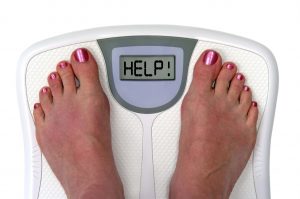 Metabolism is a series of chemical reactions responsible for converting food into energy to run cellular processes. These reactions enable people to grow and sustain life effectively.
Metabolism is a series of chemical reactions responsible for converting food into energy to run cellular processes. These reactions enable people to grow and sustain life effectively.Individuals who are following a dieting and exercise regimen may speak about having fast or slow metabolisms depending on how long they’ve been working toward a goal, and whether or not they have seen measurable results.
Even though the speed at which the body metabolizes food is different for every person, sometimes a very sluggish metabolism could be a sign of illness. A diet that has stalled or even led to weight gain can be more than faulty genes. According to experts at the Washington Endocrine Clinic in Washington, D.C., certain underlying illnesses can result in weight gain or difficulty losing weight. Recognizing that a slow metabolism is part of certain conditions, and treating those conditions, can help people regain their energy and start losing weight.
• Extra cortisol: If the body has too much cortisol, which is known as “the stress hormone,” it may think it’s under duress and needs extra calories for bodily energy. Normal amounts of cortisol can help burn fat if it is working synergistically with the rest of the chemicals in the body. When there’s too much, calories are hoarded.
• Cushing’s disease/syndrome: A similar phenomenon occurs with Cushing’s disease. This is an illness that occurs when there is too much cortisol in the body, according to The Pituitary Society. A tumor of the adrenal glands is sometimes to blame, while in other cases the body just makes too much of the hormone ACTH, which causes cortisol levels to ramp up. Medications to control excessive production of cortisol can help.
• Hypothyroidism: With hypothyroidism, the thyroid gland does not produce enough thyroid hormone, offers the Mayo Clinic. This causes any number of bodily functions to slow down and result in weight gain, fatigue, joint pain, and other symptoms. Supplementation with a synthetic form of thyroid hormone may restore function and enable weight loss.
• Low testosterone: This is a condition in which the testes do not produce enough testosterone. It affects nearly 40 percent of men aged 45 and older, says the Cleveland Clinic. Symptoms of low testosterone, such as increased body fat and fatigue, can derail weight loss efforts. Men can undergo testosterone replacement therapy to restore levels.
If weight loss has stagnated and it is followed by other symptoms, individuals should make an appointment with their doctors to discover if illness is behind this difficulty.






